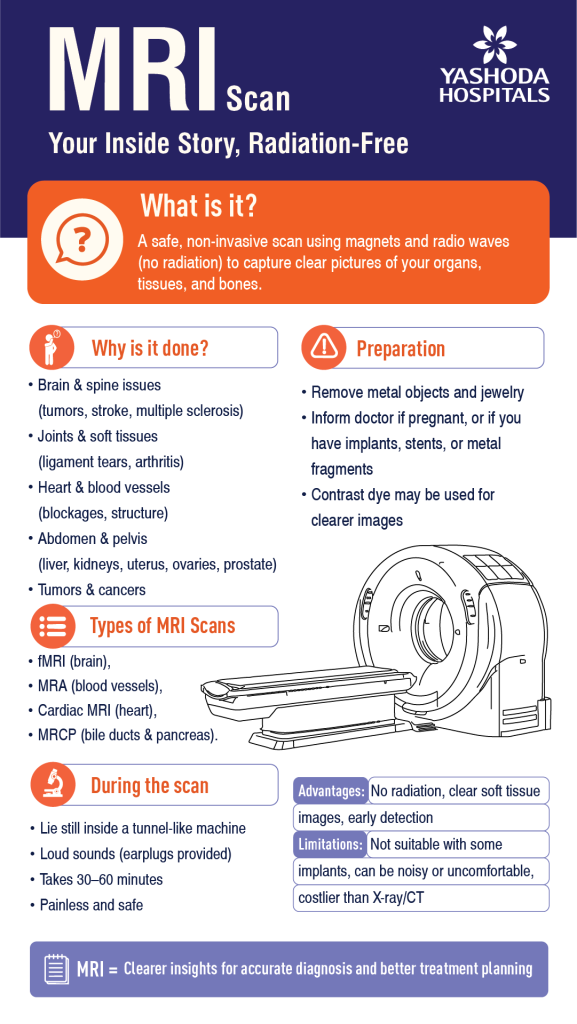What is MRI Scan?
MRI stands for magnetic resonance imaging. It takes photographs with radio waves and magnetic fields. It images soft tissue, such as organs and muscles, which are not visible on X-ray..
Normal x-rays image calcium and are therefore helpful in identifying bones. Because all tissues in the body contain varying amounts of water, MRI scans are extremely valuable. It enables the capture of high-resolution images of several organs and tissues that are invisible to standard x-rays.
Inform your doctor of any health issues, recent surgeries, allergies, and possible pregnancy. However, some medical devices may malfunction due to the magnetic field. The best time to eat and drink before an exam varies by facility. Unless otherwise directed, keep taking your usual medications. Dress comfortably and leave jewellery at home. You must wear a gown. If you have anxiety, ask your doctor to give you a mild sedative. To get a free second opinion and book an appointment for an MRI scan, contact us at Yashoda Hospital





 Appointment
Appointment WhatsApp
WhatsApp Call
Call More
More